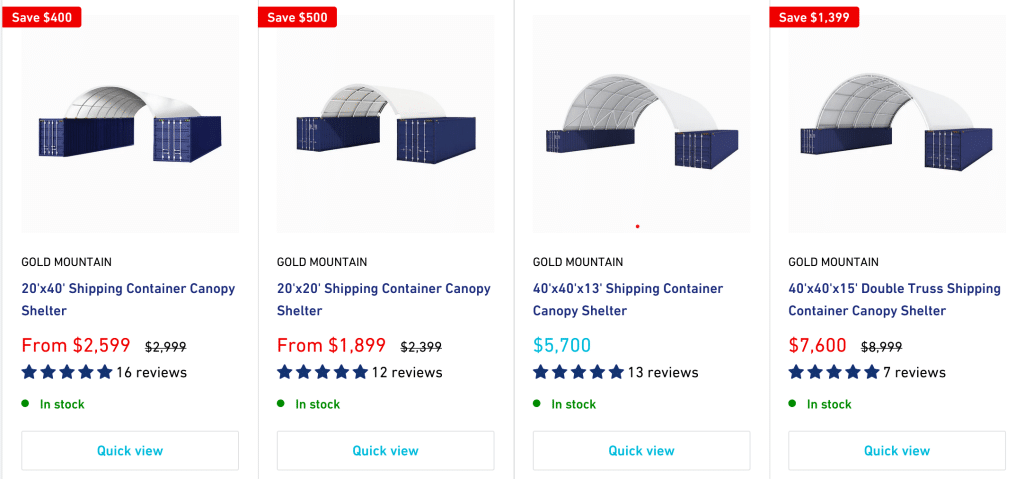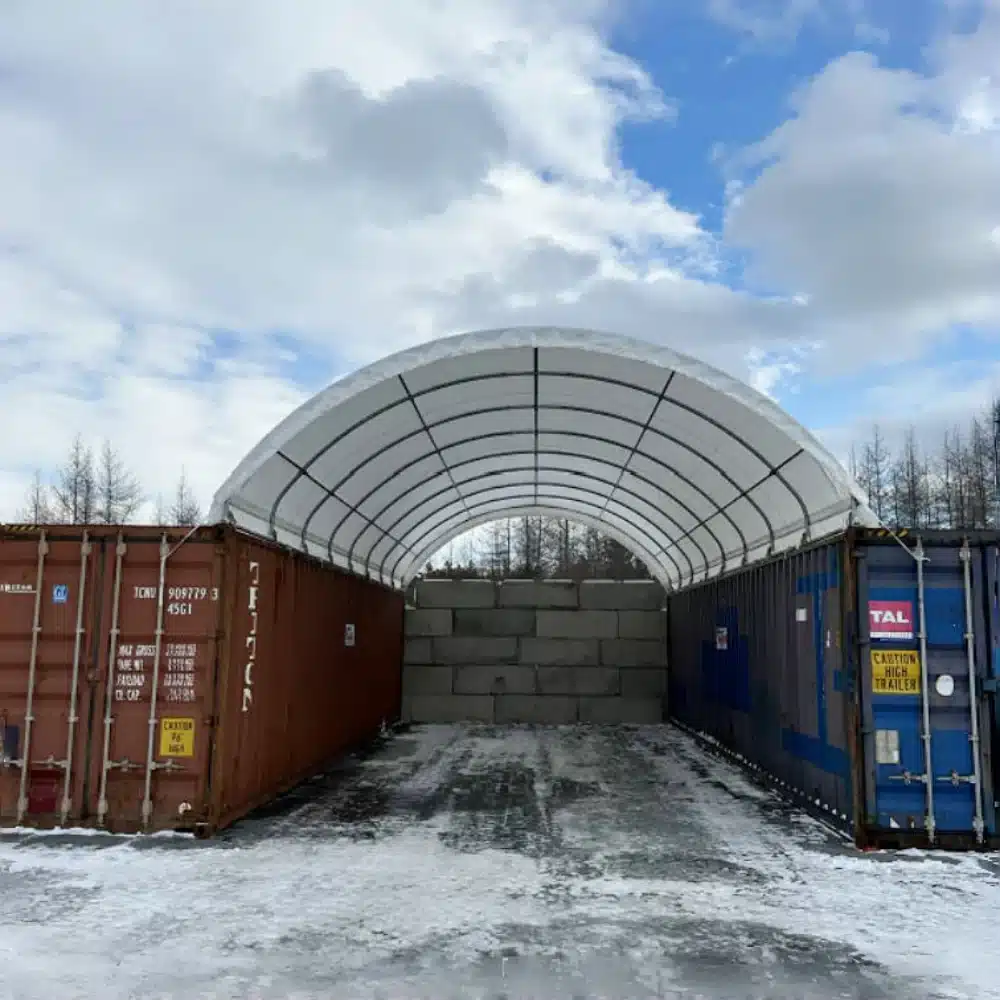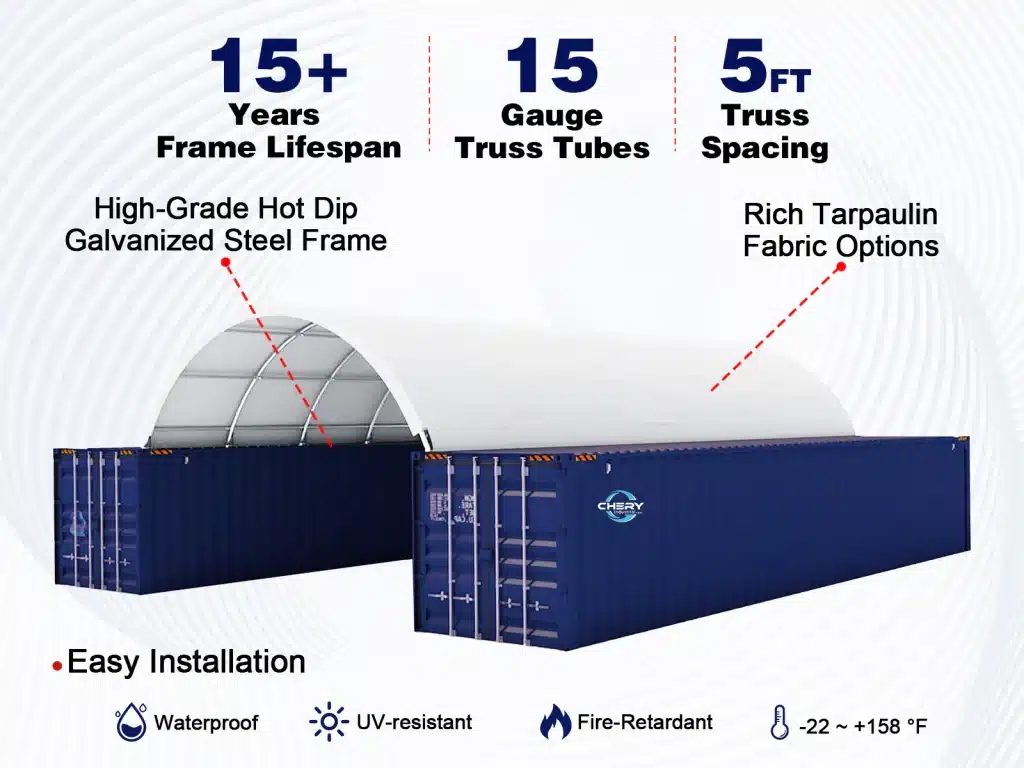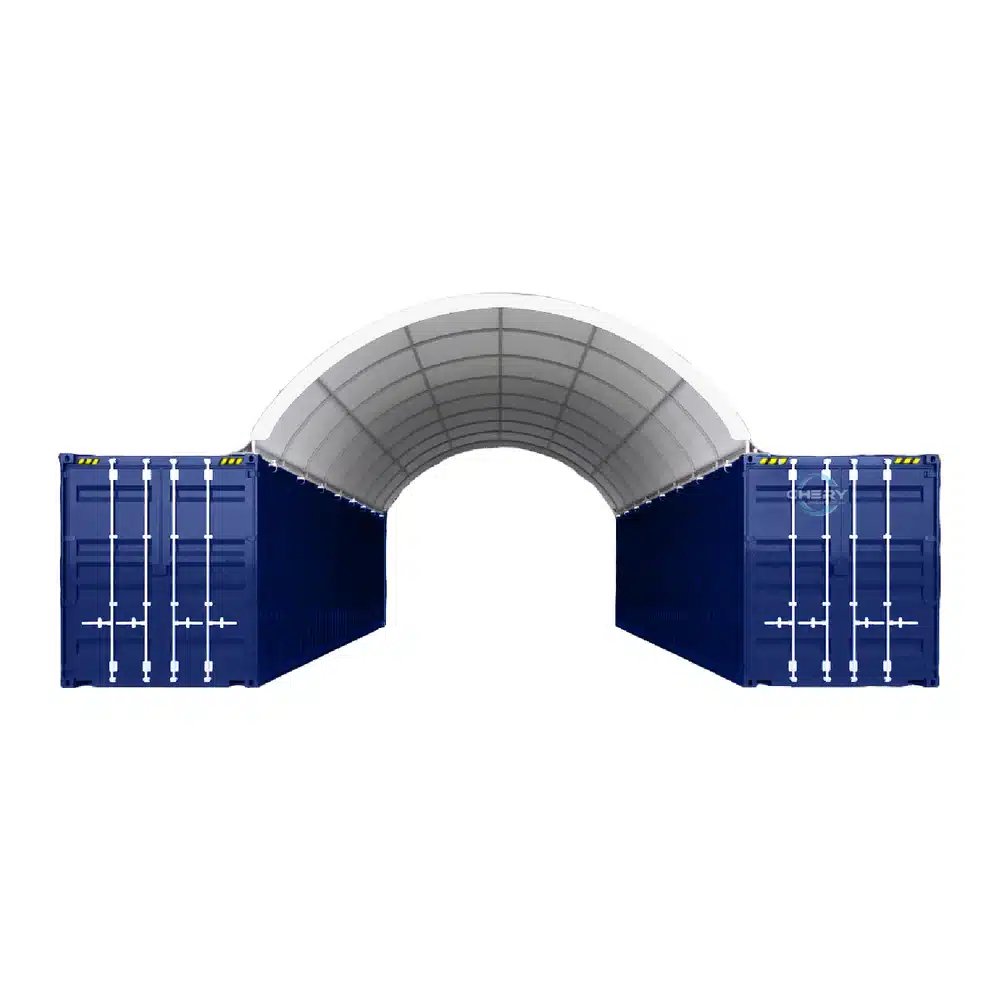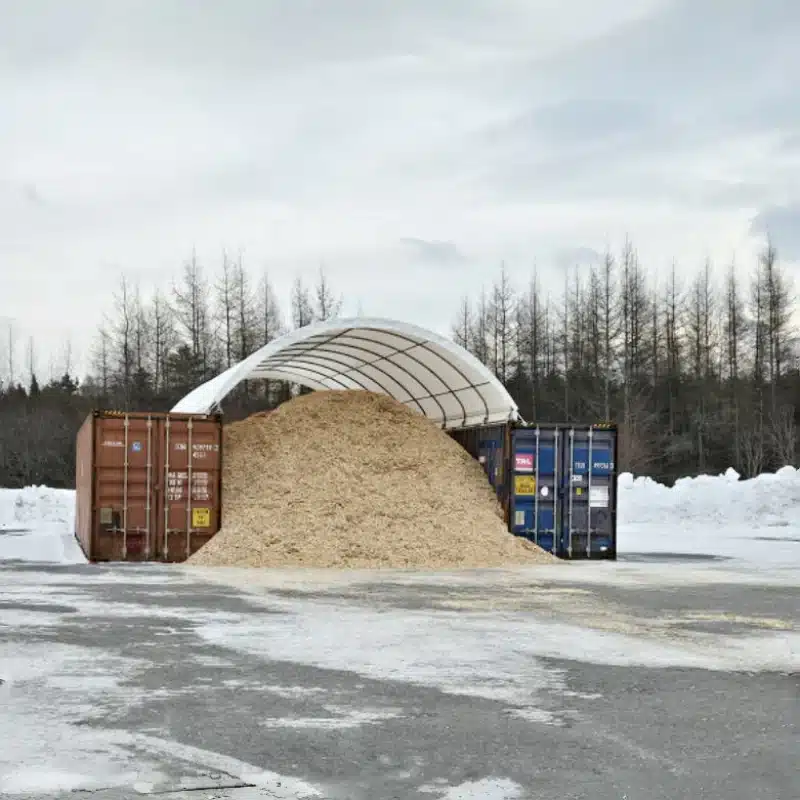Shipping container shelters are a surprisingly practical way to keep tools, vehicles, or supplies safe from the elements—and, let’s be honest, from sticky fingers too. They’re sturdy, relatively affordable, and don’t take a degree in engineering to set up, which is probably why you’ll spot them everywhere from job sites to farms and even backyard projects. That steel frame and tough tarpaulin cover? They’ll handle rain, sun, wind—whatever gets thrown their way.
COMPARE PRICES & SAVE
There are so many designs and sizes out there, it’s almost overwhelming. Want open or closed ends? Need premium tarps like PE or PVC? You’ll find everything, from heavy-duty industrial models to more basic options for storage or farm gear. This kind of flexibility makes them handy for all sorts of projects and environments, big or small.
Why Are Shipping Containers Used For Shelters?
Shipping container shelters take those steel cargo boxes you see stacked at ports and turn them into safe, solid spaces for people, equipment, and vehicles. They’re flexible, quick to set up, and have become a go-to fix when storms hit, emergencies pop up, or housing gets tight.
Basically, a shipping container shelter is a steel shipping container that’s been repurposed into a protected space for storage or people. These things are built tough—heavy-duty steel means they don’t flinch at wind, rain, or flying debris.
You’ll find them used for everything from storm shelters and temporary homes to workshops, offices, and storage. Their portability is a huge plus—move them where you need, when you need. That kind of flexibility lets folks and organizations react fast when disaster strikes.
Stack ‘em, group ‘em, or spread ‘em out—you can create bigger shelter spaces easily. And since they’re weather-resistant, they work for both short-term fixes and longer-term solutions.
Types of Shipping Container Shelters With Canopies
There’s quite a range to choose from. Some are built as storm shelters, offering serious steel protection during tornadoes or hurricanes. Others are converted into emergency homes—fast, tough places to live after disaster hits.
On the commercial side, they’re often used as covered parking for vehicles, machine storage, or farm tool sheds. Usually, it’s one or two containers with a strong tarp or roof stretched between them. Some models even have insulation and ventilation for climate control—handy if you’re storing stuff that doesn’t love heat or cold.
Here’s a quick look at the common types:
| Type | Main Use | Key Feature |
|---|---|---|
| Storm Shelter | Extreme weather safety | Reinforced steel |
| Emergency Housing | Temporary homes | Fast setup |
| Equipment Storage | Tool/machine shelter | Weatherproof cover |
| Office/Workshop | Work space | Modified interiors |
Key Features
What really sets these shelters apart? The steel structure, for starters—it shrugs off rust and stands up to rough weather.
Most have heavy-duty tarpaulin roofs (PE or PVC) for extra toughness. Some go further, with insulation, secure doors, and locks to keep everything safe from thieves and storms alike.
Since they’re modular, you can stack, join, or move them around as your needs change. The standard sizing makes it easy to fit in furniture, equipment, you name it. All in all, they’re a solid pick for anyone after a tough, adaptable, and budget-friendly shelter.
Our Most Common Uses of Shipping Container Shelters
It’s kind of wild how many ways people use shipping container shelters, whether at home or on the job. Their strength, portability, and the way you can tweak them for different needs is a big part of their appeal.
Agricultural and Industrial Applications
On farms and job sites, container shelters pull their weight. Farmers use them for equipment sheds, feed storage, or even climate-controlled rooms for plants and animals. The steel walls keep pests and bad weather out.
Industrial crews use them to store chemicals, tools, safety gear, or as pop-up workshops at construction sites. Need a bigger space? Stack or link a few containers—no need for a months-long building project.
They really shine in rough weather or remote areas. Easy to move, tweak, and tough as nails.
Disaster Relief and Emergency Shelters
When disaster hits, speed matters. Shipping container shelters can be set up fast and hold up in tough conditions. Relief agencies use them for family housing, clinics, or command posts after storms, earthquakes, or floods.
They’re tough enough for extreme weather and can be reused for the next crisis. Containers show up by truck or ship, and setup is usually pretty quick. With a little extra work, you can add electricity, plumbing, and climate control for longer stays.
Their durability and speed make them a go-to in emergencies. It’s smart for local governments and relief groups to keep a few on standby—cuts down response time when every hour counts.
Workshops and Storage
If you need a safe spot for tools or gear, container shelters are a no-brainer. People use them as workshops, garages, or just extra on-site storage. The steel walls are a solid defense against theft, fire, and nasty weather.
Want shelves, benches, or better ventilation? All doable. Whether it’s woodworking, car repairs, or stashing seasonal stuff, these containers fit the bill. They’re easy to tuck into tight spaces or move around as your needs shift.
They were built to be waterproof, fireproof, and crush-resistant from the start, so they’re a safe bet for long-term storage. Businesses especially like them for inventory, building materials, or heavy equipment.
Design and Customization Options
Shipping container shelters are nothing if not flexible. You can tweak them for workspace, storage, or whatever oddball need pops up. Size, climate control, access, ventilation—it’s all on the table.
Size and Layout Choices
There’s a size for everyone. Standard containers are usually 20 or 40 feet long, but some companies offer custom widths (10 to 60 feet) and lengths up to 100 feet. If you need something special, custom canopies are an option, too.
Inside, you can go wild—dividers, shelves, anchored benches, whatever works. Some businesses want wide-open layouts, others need separate zones or office nooks. It’s all about making the space work for you.
If you need to expand, that’s doable too. Add new container bays or connect modules whenever you need more room.
